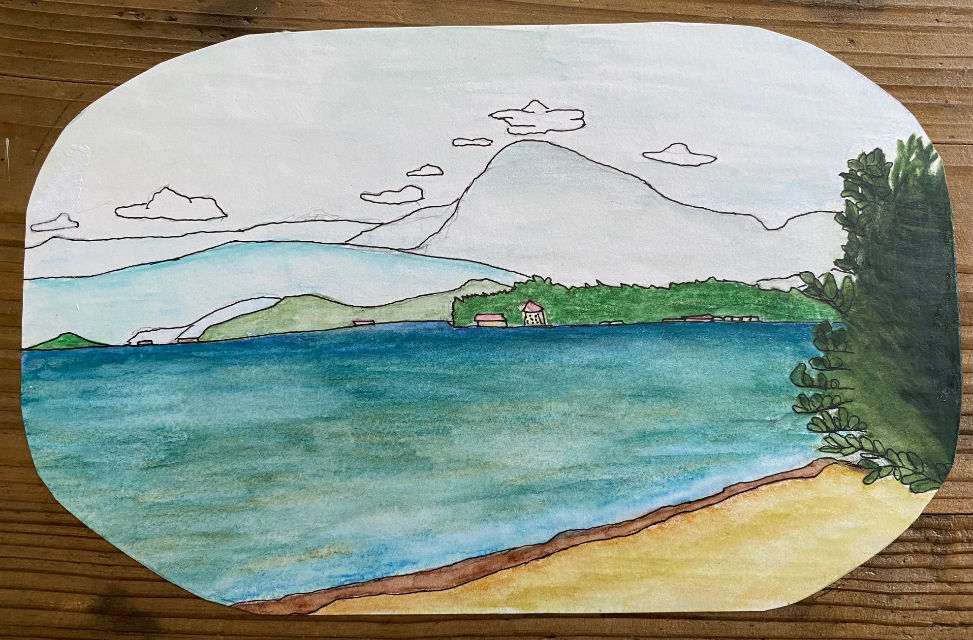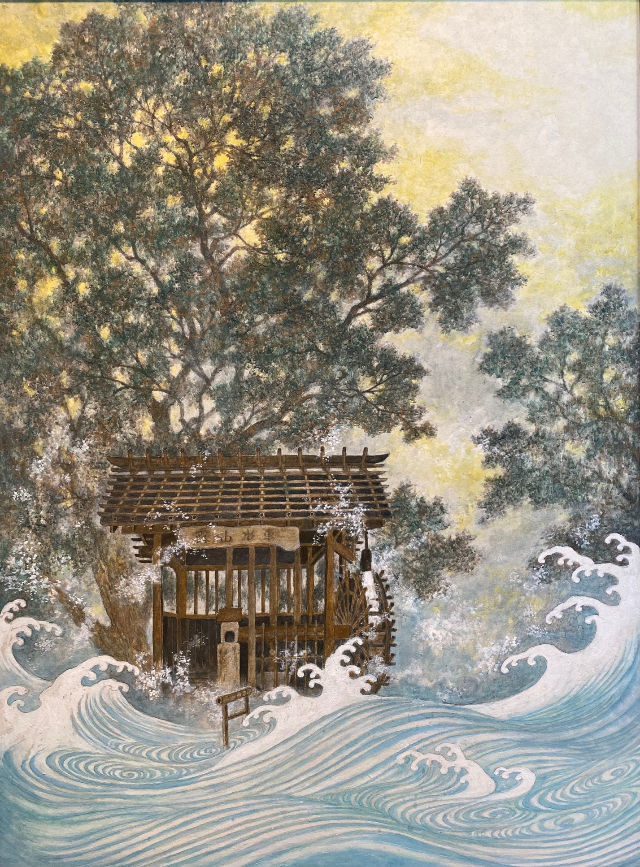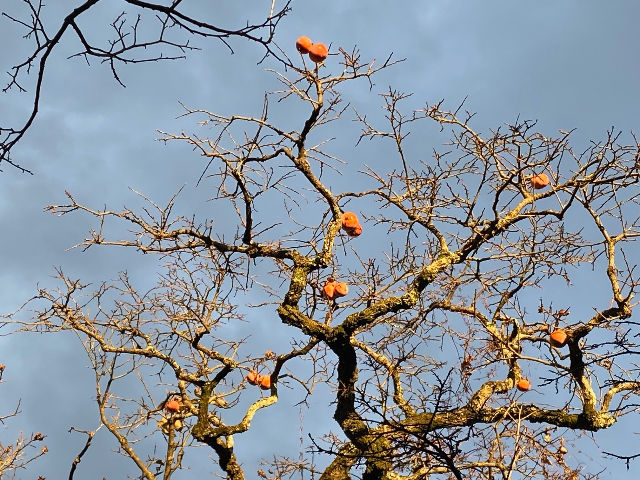THE OTHER SHORE Autumn Equinox, 2025
- Rebecca Otowa
- Sep 22, 2025
- 5 min read

(The picture shows a scene I sketched in the summer of this year when my husband took me to a deserted beach on eastern Lake Biwa near the city of Hikone. The beach had a view of Mt. Ibuki, the tallest mountain in Shiga prefecture, topping out at 1377 meters. When I was sketching, I noticed a round piece of wood near my feet – probably an old barrel lid – and took it home and fixed the sketch to it.)
The equinox in Buddhism is called o-higan, which means “the other shore”. The autumn o-higan is said to be more important. This image – perhaps of a rushing river, which must be crossed in order to reach the other shore – is very important in Buddhism. At these equinox times of year, the “other shore” (the Pure Land, so-called in some forms of Buddhism) and this shore (this world) are said to be closer together than at any other time of year.
One of my favorite parts of Buddhism is the Heart Sutra, a one-page sacred text which is about the great or superlative wisdom, prajna-paramita in Sanskrit. It ends with a mantra, in Japanese “gya te gya te hara gya te hara sou gya te bodhi so wa ka” (O great awakening, going, going, going beyond the void. All hail! – my translation) which reminds me of the other shore, the calm place where we long to go to escape the problems of this world. This is termed Nirvana in Buddhism, a mental space where all desires will drop away and peace will reign.
What would it feel like to be without desire? For anything, even for the superlative wisdom or for the Pure Land, a beautiful heavenly place where believers go when they die? When we say “the other shore” are we not making a difference between that and this shore, the area of our everyday lives, and expressing a longing for that other shore, which we see as superior to this? Desire is very complicated and difficult to weed out. No wonder the Hindu phrase “neti, neti” (not this, not this) is used so often. The voluminous commentaries on even the smallest sutra show how hard it is for human beings to comprehend this.
Is desire the same as attachment? Is it the same as addiction? When we are addicted to something, we can say we are attached to it. The five skandhas (bundles) of consciousness are what make up the human self, according to the Buddhists; but to chase after these, to be attached to these, is folly, because they are ever-changing.
So, is there something that is not ever-changing that we can cling to? Buddhism says no. Clinging, attachment, is the root of suffering (not pain) in the human condition. That can be clearly seen when we notice that we enhance our suffering when, instead of simply feeling the pain, we look for the causes and conditions which gave rise to it, and look for something or someone to blame for our pain, which causes eventual storytelling (“my pain and suffering are worse than yours, and here’s why”). Being attached to the story line is one reasons we feel our pain not once, but over and over again – every time we tell the story to ourselves or others – and this is how pain becomes suffering.
I recently found a group on Facebook in which women going through perimenopause or menopause are encouraged to say what they no longer care about. The list apparently runs the gamut from the relatively flippant “I do not care that my clothes are inside out today” to really heavy stuff such as “I do not care that I was deserted by my no-good husband, lost my home, contracted cancer, etc.” I can see how this would be an addictive pastime, to obsess about WHY you are this way and who’s to blame, to constantly tell the story of childhood abuse and disease and other types of pain – but does it really help anyone, especially you? What kind of “help” are we trying to get when we say or think about such things obsessively?
I was in a Western magical group for a decade or so. At that time the friend who introduced me to it, said “the eastern way is passive, the western way is active”. When she said eastern, she was talking about things like Buddhism, which originated and flowered in the eastern (Asian) part of the world. She thought that western people, such as ourselves, should choose western-style disciplines because they were easier to understand, and felt more “homey”. That was how she presented it to me, when she wanted to introduce me to the western magical tradition. But after some time in this discipline I came back to Buddhism, with all its contradictions and I believe, ultimate compromises, and no worshipped deity at all. It just felt peaceful and right. That’s where I am now. It occurs to me that the whole thing about “eastern” and ”western” ways of thinking is itself a story, that we can use to apportion blame or to feel superior. (Many would think that “active” is better than “passive”.)
Elsewhere in the Heart Sutra, it is said “shiki fu i ku, ku fu i shiki/Shiki zoku ze ku, ku soku ze shiki”. (The “other shore” is not different from, in fact is none other than, this material life, in effect.) I wrote a blog about this before (no. 78), so I won’t go into it again, except to say that this is one way to reconcile this apparent contradiction between the desire for something else (the “other shore”) which is very human and of this world, and the knowledge that even this dichotomy between this shore and the other shore cannot stand because it is all changing all the time.
Of course we humans know nothing of other ways to exist. That is why all the commentaries on the sacred texts were written, and there are an awful lot of them. We are all trying to crack this nut called material existence (shiki) in our various ways. What does it mean? Some would say, don’t look for meaning, just enjoy or endure it.
Kurt Vonnegut said that his son answered the question, “Why are we all here?” by saying “We are here to help each other get through this thing, whatever it is.” That is one way to think about it.
Does it really matter in the long run, big picture, or what you may call it? Maybe in some way, we can come closer to an answer (if there is one) in this time of equinox, when the “other shore” is said to be close to our own world.



Comments